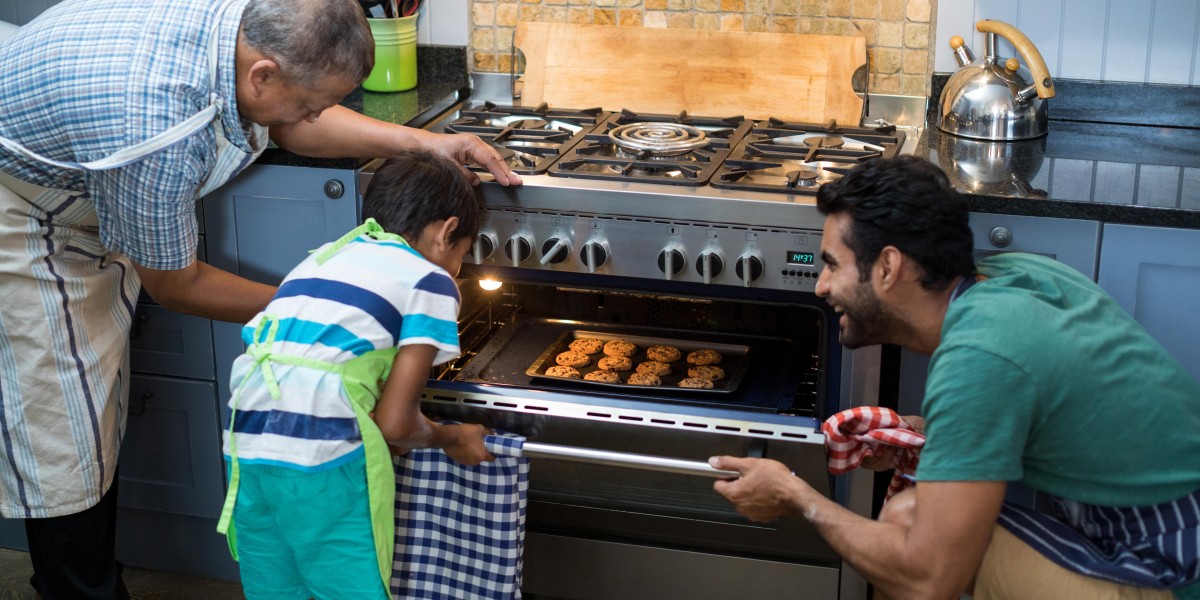The Modern Kitchen: A Guide to Built-In Ovens and Hobs
In today's busy world, where cooking has actually become a creative outlet and an important part of daily life, having the right kitchen appliances is crucial. Amongst these, built-in ovens and hobs stand apart as favorites in modern kitchen areas. This post aims to explore these appliances in depth, discussing their advantages, types, setup options, and essential tips for selecting the best models for your kitchen.
Comprehending Built-In Ovens and Hobs
What are Built-In Ovens?
A built-in oven is a home appliance that is developed to fit perfectly into kitchen cabinetry, offering a tidy visual in the kitchen. They differ from freestanding ovens and are understood for their adaptability, offered in numerous sizes and performances. Built-in ovens can be electric, gas, and even steam ovens, making them ideal for various cooking designs.
What are Hobs?
Hobs, also referred to as cooktops, are the flat cooking surfaces generally found on the countertop. Like ovens, hobs can be found in lots of forms, consisting of gas, electric, induction, and even integrated styles. Their compact nature allows for flexibility in kitchen layouts and designs.
Table 1: Comparison of Built-In Ovens and Hobs
| Function | Built-In Oven | Hob |
|---|---|---|
| Setup Type | integrated cookers into kitchen cabinets | Set up on counter top |
| Cooking Methods | Baking, roasting, steaming | Boiling, frying, sautéing |
| Types | Single, double, mix | Gas, electric, induction |
| Looks | Modern, streamlined designs | Numerous finishes available |
| Control | Digital programs, handbook | Knob or touch control |
| Cost Range | Mid to high-range | Wide, depending on type |
Advantages of Built-In Ovens and Hobs
Aesthetic Appeal
Built-in ovens and hobs contribute significantly to a structured look in contemporary kitchens. Their combination into cabinets permits a tidy and professional finish that matches any kitchen design.
Space-Saving Design
One of the critical benefits of built-in ovens and hobs is their space-saving style. As they are fitted directly into kitchen cabinetry, they free up important counter area, making the kitchen feel bigger and more organized.
Flexibility in Cooking Methods
Built-in ovens included numerous cooking functions, such as convection, barbecuing, and self-cleaning choices. Likewise, hobs provide diverse cooking techniques, including fast boiling with induction innovation or the traditional flame of gas hobs. This flexibility permits home cooks to explore a wide range of cooking methods.
Improved Safety Features
Many modern-day built-in hobs and inbuilt ovens come with sophisticated security features, such as automated shut-off, cool-touch doors, and kid locks. These features boost security, particularly in homes with children.
Selecting the Right Built-In Oven and Hob
Choosing the ideal built-in oven and hob for your kitchen includes a number of factors to consider:
Factors to Consider
- Kitchen Layout: Understand the circulation and design of your area to select appliances that fit your style.
- Cooking Habits: Are you a casual cook, or do you prepare complex meals? Understanding your cooking requirements will assist your selection.
- Spending plan: Building a spending plan will help limit your choices without spending beyond your means.
- Energies Available: Check if you have access to gas lines for a gas hob or if you choose electric alternatives.
- Energy Efficiency: Look for energy-efficient models that can minimize electricity or gas costs in time.
Kinds Of Built-In Ovens and Hobs
Built-In Ovens

- Single Ovens: Ideal for smaller kitchens or casual cooks.
- Double Ovens: Great for those who frequently amuse or cook several dishes at the same time.
- Mix Ovens: Feature both conventional and microwave performances.
Hobs
- Gas Hobs: Perfect for those who prefer the control of open flames.
- Electric Hobs: Common and easy to use, but might take longer to warm up.
- Induction Hobs: Quick heating and energy-efficient, however need compatible cookware.
Frequently asked question Section
Q1: Are built-in ovens more pricey than freestanding ovens?A1: Generally, built-in ovens are more pricey due to their design and installation requirements. Nevertheless, the price can differ based upon functions and brands. Q2: Can I install a built-in oven myself?A2: While DIY installation is possible, it is suggested to employ a professional for gas and electrical connections to guarantee security and compliance with regional codes. Q3: What upkeep do built-in ovens and hobs require?A3: Regular cleansing is necessary. Hobs might require occasionaldescaling, and ovens can gain from self-cleaning functions if If you value accurate temperature level control, gas might be the Search for those with high rankings to conserve on energy bills. In summary, built-in ovens and hobs are important elements of an elegant and practical contemporary kitchen. Their variety, safety functions, and aesthetic appeal make them an attractive option for property owners and striving chefs alike. By carefully considering your cooking practices, kitchen design, and style preferences, you can pick the right built-in appliances that enhance your cooking experience and change your kitchen into a cooking sanctuary. The investment in these appliances not just includes worth to your home however likewise raises your cooking to brand-new heights.
offered. Q4: How do I pick in between gas and Indesit 60cm Stainless Steel Electric Oven - Affordable Quality hobs?A4: Consider your cooking choices, available energy connections, and security features.
best option. For quick heating, electric or induction might be much better. Q5: What are the energy efficiency ratings of built-in ovens and hobs?A5: Most modern built-in ovens and hobs featured energy ratings, comparable to other appliances.






